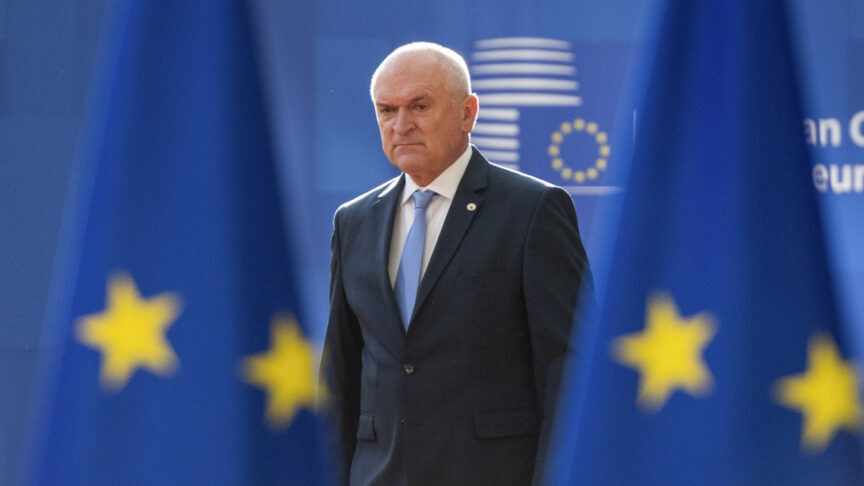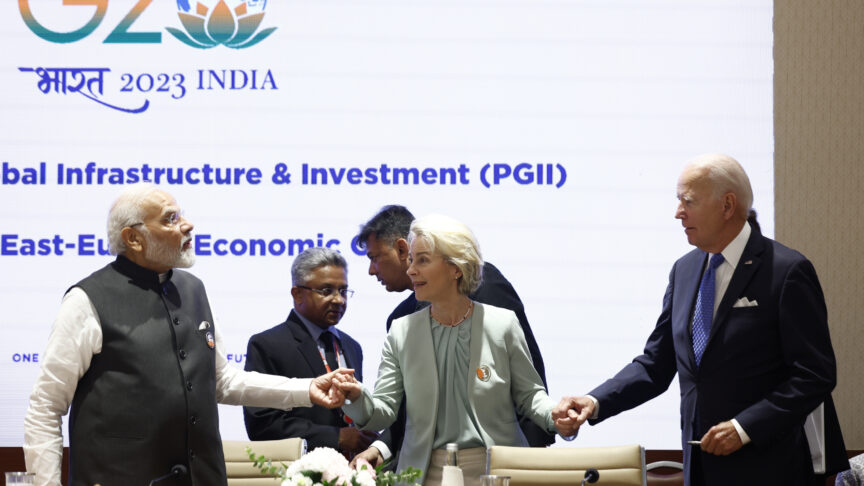End of the ?war on terror?: what next?
Obama is redefining the fight against terrorism. But he has come up against some stiff criticism and urgently needs the EU’s help.
This commentary piece is based on ECFR’s latest policy brief, Beyond the “War on Terror”: Towards a New Transatlantic Framework for Counterterrorism
The “war on terror” waged by the United States under President Bush caused major problems for the European Union. European countries saw US measures as unjust, but at the same time were unable to avoid being associated with them in the eyes of the world. Europe remains a major target for terrorists, and most European governments thought US policies were counter-productive, playing into the terrorists’ narrative of Western oppression of the Islamic world.
Now, with Barack Obama as US president, the European Union has a significant opportunity to draw a line under the divisions and compromises of the “war on terror”. There is an opening for EU countries to work with the United States to put transatlantic cooperation against terrorism back on a principled footing. This is a particularly important moment for such an initiative, as President Obama is facing intense political opposition within the United States over his attempts to reform US counterterrorism policy, above all by closing Guantanamo. Europe should respond to his efforts in a swift and constructive way.
The first priority for the European Union is to help President Obama close Guantanamo, by accepting some of the detainees for resettlement. There are an estimated 50 or so prisoners who have been “cleared for release” by the United States, but who can’t be returned to their home countries because of the risk they would be persecuted or tortured. President Obama has asked for Europe’s help in taking some of these people, but the EU’s reaction so far has been hesitant. The debate within Europe has focused primarily on domestic security concerns, rather than looking at the broader strategic importance for transatlantic relations.
Now at last the European Union is giving the issue serious consideration. The EU’s Justice and Home Affairs Council will meet next week to discuss a common European policy on resettling detainees, which would place Europe’s help in the context of a new US approach to international law. European countries should endorse this common policy, and then should move quickly to agree with the United States to take some of the detainees. President Obama is being mocked by his opponents in the United States for closing Guantanamo to please Europe-it is up to the EU to show that his efforts to change America’s policies are bringing dividends of enhanced international cooperation.
Helping to close Guantanamo would give the EU credibility to work with the new US administration on the wider issue of counterterrorism and international law. Europe has much to gain from drawing up a new understanding with the United States on how to fight the common threat of al-Qaeda in a way that is effective and in line with the values on which the transatlantic alliance has historically been based. President Obama has attracted controversy with some of his recent moves on terrorism-such as endorsing detention without trial for some terrorist suspects, as well as military trials in some cases-but these steps should not blind European countries to the fact that he is genuinely trying to recast US policies to comply with the rule of law.
Europe should seize the chance to work with the new US administration to define a set of core principles for fighting terrorism while respecting international law and fundamental human rights. The new security threats of international terrorism present genuine and complex problems, and the European Union can help define new solutions that are in keeping with its values. But to do this, the EU will have to make a more serious effort than it has done so far to agree on a comprehensive set of principles to govern the fight against terrorism, including military operations overseas where appropriate. So far, Europe has tended to let the United States take the initiative, criticizing American actions without offering a detailed alternative of its own.
While conducting this internal review, the European Union should also reach out to the United States to make sure that EU and US thinking is coordinated. By defining together a common approach to terrorism, Europe and America could show the world that they now stand together in their commitment to the rule of law. A common framework of principles would also remove the problems that have arisen on the ground between European and US forces and intelligence agents in areas like detention and interrogation.
The European Union and the United States should now be able to agree a high-profile public declaration of common principles for fighting terrorism that could be signed during the Spanish presidency of the EU next year. This would put to rest the legacy of President Bush’s “war on terror” and would be a major asset for future European efforts to combat the threat of terrorism. By working towards such a declaration, the EU could help shape the development of US counterterrorism policy. Ultimately, this could also help to define a new international standard of best practice for fighting terrorism in line with the rule of law.
The European Council on Foreign Relations does not take collective positions. ECFR publications only represent the views of their individual authors.


